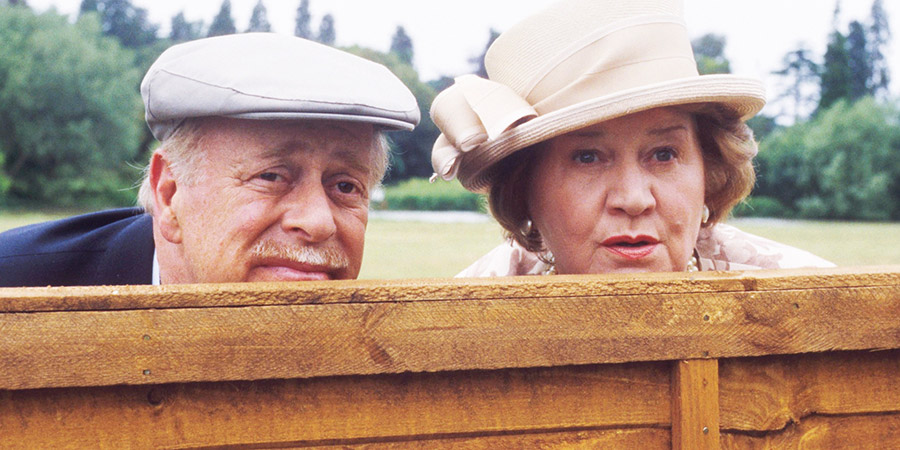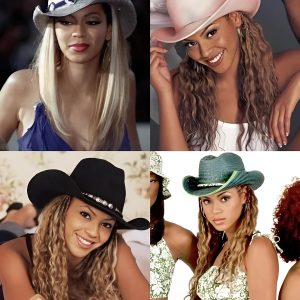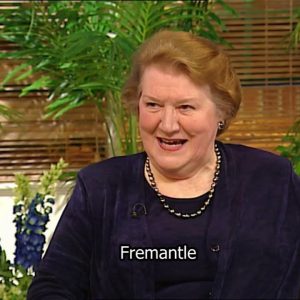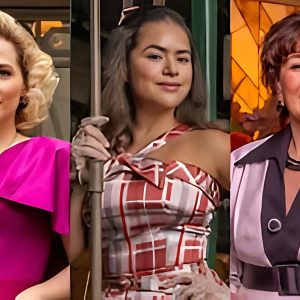“The Lady of the House Speaking”: How Keeping Up Appearances Turned Hyacinth Bucket into a Global Icon of Comic Delusion
In the world of television, few characters transcend their scripts to become cultural shorthand. But when someone today is described as “a Hyacinth Bucket,” entire histories are evoked—of porcelain teacups, pretentious affectations, and desperate bids for upper-class recognition. Through the lens of Keeping Up Appearances, the BBC’s razor-sharp satire on social climbing, Hyacinth Bucket (pronounced “Bouquet,” as she never failed to remind) didn’t just become a comedy legend—she became an archetype.
Broadcast from 1990 to 1995 on BBC One, Keeping Up Appearances followed the tireless efforts of Hyacinth to ascend Britain’s rigid class ladder. With her timid husband Richard in tow, Hyacinth plotted her “exclusive candlelight suppers,” chased aristocratic connections, and projected an image of gentility so aggressively fake it teetered into absurdity. But her intentions, however noble in her mind, collided comically with the reality of her family, neighbors, and friends—who wanted nothing more than to escape her suffocating presence.
Created by sitcom veteran Roy Clarke and directed by Harold Snoad, the show married British class commentary with rich character dynamics. At its center was Hyacinth, brilliantly played by Patricia Routledge, whose career-defining performance earned two BAFTA nominations and a British Comedy Award. But beyond the accolades, Routledge created a character so specific, so painfully familiar, that she became instantly recognizable even in the abstract.
The Delusional Queen of Suburbia
Hyacinth’s humor lay in her disconnect from reality. She was convinced of her superior taste and breeding, even as chaos brewed around her. Her condescension was never more evident than when she declared: “If there’s one thing I can’t stand, it’s snobbery and one-upmanship. People who pretend they’re superior. Makes it so much harder for those of us who actually are.”

From the pristine white slimline telephone she answered with her signature “the Bouquet residence, the lady of the house speaking” to her obsession with “Royal Doulton with the hand-painted periwinkles,” every element of Hyacinth’s world was a performance. But the joke was always on her—and it was this irony that viewers adored.
Her immediate circle—most notably her beleaguered husband Richard (Clive Swift), her anxious neighbor Elizabeth (Josephine Tewson), and Elizabeth’s brother Emmet (David Griffin)—endured Hyacinth’s social pretensions with increasing desperation. Elizabeth, perpetually terrified of breaking Hyacinth’s expensive china, would tremble so violently she inevitably did just that. Emmet, a mild-mannered musician, found himself cornered by Hyacinth’s impromptu renditions of operatic solos, mistakenly believing he would cast her in a local production.
Even the local vicar dreaded Hyacinth’s well-intentioned meddling in church affairs, privately referring to her as “the Bucket woman.”
A Family She’d Rather Forget
But perhaps the richest comedy came from the jarring contrast between Hyacinth and her working-class family. Her sisters—Daisy and the flirtatious Rose—lived in a run-down council house with Daisy’s beer-guzzling husband Onslow and their senile father. Their lifestyle of TV dinners, beer cans, and messy habits stood in comic juxtaposition to Hyacinth’s cultivated airs. She spent most of the series desperately trying to keep her family a secret, terrified they might appear at the worst possible moment—which, of course, they regularly did.
In one of the series’ most iconic quotes, Hyacinth captures her internal conflict perfectly: “Richard, you know I love my family, but that’s no reason why I should have to acknowledge them in broad daylight!”
The irony, and genius, was that while Hyacinth tried to impress the upper classes, it was often Onslow or Daisy who charmed them instead. Meanwhile, her prized sister Violet—married to a man with “a Mercedes, room for a pony, and a sauna”—was, unbeknownst to Hyacinth, deeply unhappy.
Even Hyacinth’s unseen son, Sheridan, was a source of delusion. While she spoke of their close relationship, it became obvious to the audience that he only called when he wanted money. Still, Hyacinth remained blissfully unaware.
Crafting a Comic Icon
Although Roy Clarke penned the scripts, it was director Harold Snoad who championed Patricia Routledge for the role. Routledge, then better known for her classical theatre work, had limited experience in mainstream sitcoms. But her comedic chops were evident from her stint as the eccentric Kitty in Victoria Wood As Seen on TV.
With Keeping Up Appearances, she delivered a powerhouse blend of verbal wit and physical comedy. Whether vaulting garden walls or collapsing into bushes, Routledge’s control of Hyacinth’s movements and expressions spoke volumes—even in silence. Her performance was so definitive that it’s nearly impossible to imagine anyone else in the role.
She was supported by a strong ensemble cast. Clive Swift’s Richard—long-suffering, exasperated, but ultimately loyal—anchored the show emotionally. Josephine Tewson and David Griffin brought well-honed comic timing, while Judy Cornwell (Daisy), Geoffrey Hughes (Onslow), and Mary Millar (who replaced Shirley Stelfox as Rose in Series 2) rounded out a family ensemble that offered both chaos and comedy.
An End at the Right Time
As beloved as it was, the series ended in 1995—not because of declining ratings (over 13 million viewers tuned in weekly), but because Routledge made a deliberate choice. She was wary of the show becoming stale.
In later interviews, Routledge reflected, “I always thought of the great Ronnie Barker. He always left when something was at its peak. It’s much better to have people say, ‘Why didn’t you do more?’ than, ‘Is that still on?’”
It was a wise move. By ending the series while it was still adored, Keeping Up Appearances solidified its place in British comedy history.
A Legacy That Crossed Borders
Though quintessentially British, the show’s themes of aspiration, embarrassment, and familial tension resonated globally. In 2016, Keeping Up Appearances was named the BBC’s most exported show. From the U.S. to Scandinavia, audiences recognized “a Hyacinth” in their own communities. Because every country, it turns out, has someone a little too obsessed with keeping up appearances.
That same year, Young Hyacinth, a prequel special, offered one final glimpse into her origins. Set decades earlier, it hinted at how her working-class upbringing and burdensome family shaped her lifelong pursuit of upward mobility.
More Than Just a Punchline
Despite her faults—and Routledge has famously called Hyacinth “a monster”—there’s a fundamental truth to the character that keeps her timeless. She’s ridiculous, yes, but also deeply human. As viewers, we laugh at her, but we also feel for her. Because most of us know someone like Hyacinth. And at times, if we’re honest, we are her.
Keeping Up Appearances endures not just because it’s funny, but because it holds up a mirror—sparkling clean, with hand-painted periwinkles—and shows us the absurdity in our own social pretensions.
And long after the teacups have stopped rattling and the Mercedes has driven off, Hyacinth Bucket will continue to represent something far bigger than herself: our collective struggle to belong, be seen, and, above all, be admired.
Would you like this rewritten article turned into a PDF or formatted for publication?





